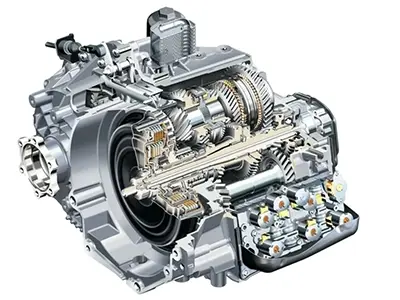
Many drivers are accustomed to paying attention to the condition of the engine oil and strictly monitor its regular replacement, but at the same time they often ignore the need to service the gearbox, believing that the fluid inside is filled for the entire service life of the car and does not require replacement, although in fact this is not the case. Oil in an automatic transmission plays no less an important role than in the engine, since it is responsible for lubricating rubbing parts, removing heat from the units, cleaning the channels from wear products and protecting mechanisms from overheating, while during operation, metal particles, friction products and various contaminants accumulate in it, which filters and magnets retain only partially, and the remaining mass circulates through the system and gradually reduces the effectiveness of the lubricant. Over time, this leads to the fact that the channels begin to clog, the oil pressure drops, the operation of the hydraulic units and friction packs deteriorates, they begin to slip, overheat and break down, which ultimately causes serious breakdowns and expensive repairs, which are often more expensive than preventive oil changes.
Owners of cars with classic automatic transmissions should remember that the deterioration of the working fluid pressure inevitably affects the quality of compression of the friction packs, and as soon as they begin to slip, overheating of the oil and the discs themselves occurs, which quickly leads to burning of the linings, the appearance of a burning smell and the destruction of the channels through which the lubricant circulates. As a result, additional deposits appear in the system, the oil channels are coked, and the liquid itself loses its original properties, which accelerates the failure of the entire box. Ignoring such processes is dangerous, since in most cases it leads to major repairs, and sometimes to the need to replace the entire transmission, especially when it comes to modern automatic transmissions, where the cost of individual components is very high and in practice it is cheaper to carry out a timely replacement of the lubricant than to eliminate the consequences of its degradation later.
Oil change is no less important for robotic gearboxes, since here the liquid is involved not only in the lubrication of parts, but also in the operation of actuators that are responsible for the gear shifting itself. An example is the robotic transmissions of the Volkswagen concern with two clutches, where the discs operate in an oil bath, which ensures their cooling and prolongs their service life, but as the lubricant ages, the efficiency decreases sharply and the load on the elements increases. In systems with one clutch, for example Peugeot Citroen EGS, two types of oil are used at once, one for shafts and gears, the other for the servo drives of the gearshift mechanism, and both require regular replacement, since the smoothness of the transmission, reliability and service life directly depend on their condition. Neglecting the replacement leads to jerks, delays in switching and accelerated wear of components, as well as expensive repairs that can be easily avoided with scheduled maintenance.
Manufacturers do not always indicate the intervals for changing the oil in gearboxes, and many owners mistakenly believe that maintenance is not required, but the universal rule is that the level and condition of the fluid should be checked at least once a year, and it is better to do this with each engine oil change. If the car was purchased with mileage and there is no evidence that the oil in the transmission was changed in a timely manner, then the replacement should be done immediately, since this will ensure stable operation of the unit and extend the service life of all its components. Regular oil changes in an automatic or robotic gearbox help avoid overheating, jerking and slipping when shifting gears, and also significantly reduce the risk of failure of expensive transmission components, which is especially important for modern cars, where the cost of repairing the gearbox sometimes reaches a third of the price of the car.

